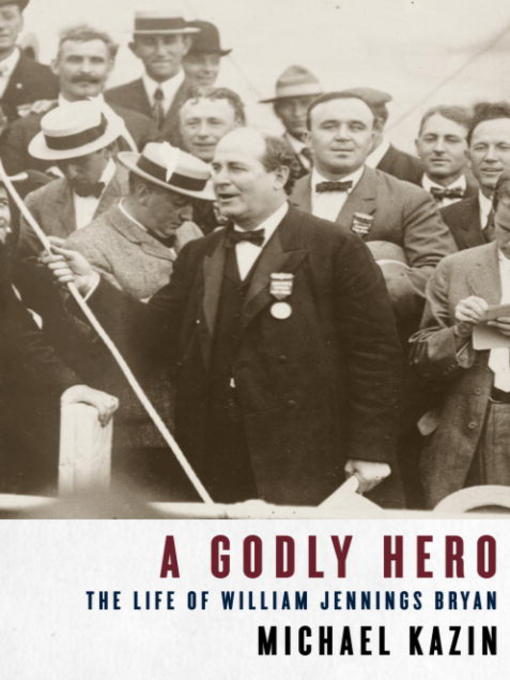ONE OF THE BEST BOOKS OF THE YEAR: THE WASHINGTON POST, CHICAGO TRIBUNE, LOS ANGELES TIMES, ST. LOUIS POST-DISPATCH.
Politician, evangelist, and reformer William Jennings Bryan was the most popular public speaker of his time. In this acclaimed biography—the first major reconsideration of Bryan’s life in forty years–award-winning historian Michael Kazin illuminates his astonishing career and the richly diverse and volatile landscape of religion and politics in which he rose to fame.
Kazin vividly re-creates Bryan’s tremendous appeal, showing how he won a passionate following among both rural and urban Americans, who saw in him not only the practical vision of a reform politician but also the righteousness of a pastor. Bryan did more than anyone to transform the Democratic Party from a bulwark of laissez-faire to the citadel of liberalism we identify with Franklin D. Roosevelt. In 1896, 1900, and 1908, Bryan was nominated for president, and though he fell short each time, his legacy–a subject of great debate after his death–remains monumental. This nuanced and brilliantly crafted portrait restores Bryan to an esteemed place in American history.
- Available Now!
- All Nonfiction
- Biography & Autobiography
- History
- Cooking & Food
- Business
- Self-Improvement
- Health & Fitness
- Travel
- Politics
- See all ebook nonfiction collections
- Available Now!
- All Fiction
- Romance
- Mystery
- Thrillers
- Literature
- Historical Fiction
- Sci-Fi
- Fantasy
- Classics
- See all ebook fiction collections
- Available Now!
- All Nonfiction
- Biography & Autobiography
- History
- Cooking & Food
- Business
- Self-Improvement
- Health & Fitness
- Travel
- Politics
- See all audiobook nonfiction collections
- Available Now!
- All Fiction
- Romance
- Mystery
- Thrillers
- Literature
- Historical Fiction
- Sci-Fi
- Fantasy
- Classics
- See all audiobook fiction collections



